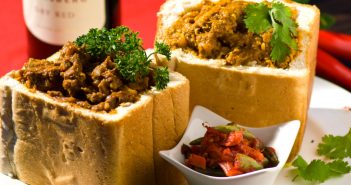Foods are one of the most important commodities we have in life. Food serves as our fuel in order to become productive as we face another day. Without food, we’d be weak and sick all day. That’s why it’s good to preserve our foods. Not only it is cost-effective for us but it also reduces spoilage.
You may think that there are tons of ways to preserve food, but most of the methods we know involve artificial preservation. We barely want to waste food. After all, we don’t want to starve, do we?
“Food is a part of our contract with life.” – Bryant McGill
Here, we share simple and natural tips on how to preserve your food.
 Vegetable Sacks
Vegetable Sacks

The truth is, you don’t need to store all your vegetables in the fridge, especially if you want to stock up root vegetables. In fact, root vegetables spoil faster when stored in wet places. Onions, garlic, shallots, potatoes, etc last longer if you put them in dry places.
While most of us don’t have root cellars to stock our veggies, we still have an alternative option. We can keep these root veggies on a vegetable stack. It will keep them away from external temperature and prevent them from sprouting.
 Using Pop Containers
Using Pop Containers
As much as possible, try not to leave your dry foods (such as cereals and crackers) half empty in an open container. They will be stale and tasteless due to air circulation. Eventually, they spoil. To avoid this, try putting your dry foods in air-tight containers when you open the original packaging. You can also recycle your bottles to store your foods safely.
 Cheese Keeper
Cheese Keeper
One of the most difficult foods to preserve is cheese because it easily molds. If not, it can also become rusty or dry out. Eventually, it will also lose its taste, nutrients, and becomes totally unappetizing. You can prevent this, however, by placing the cheese in a cheese keeper.
Unlike the fridge, the cheese keeper is a tight container that regulates the humidity to keep the cheese fresh. It also prevents your cheese from molding or drying out. If you cannot find a cheese keeper, you can wrap your cheese securely in a wax paper.
 Vacuum Sealer
Vacuum Sealer

A vacuum sealer is an essential tool for keeping your foods fresh. The machine seals your foods in an air-tight wrap. You can then put your foods in a refrigerator after sealing them in vacuum bags. These vacuum sealers can keep your foods fresh for months.
Even if this tool is highly useful in preserving your foods, there is a little downside to it. Due to their impressive features, vacuum sealers are often a little expensive in the market. If you cannot afford it, for now, you can use an alternative using a straw and plastic bags. They may not be as effective as the vacuum sealer, but they also do the trick.
 Produce Savers
Produce Savers
The problem with fresh fruits and veggies is that they release a lot of ethylene gas when they ripen. This gas causes your fresh produce to spoil faster. To prevent this, you can use produce savers to extend the shelf life of your foods. Produce savers helps absorb the extra humidity and ethylene gas so that your foods, keeping them fresh for longer.
 Herb Keeper
Herb Keeper
Keeping the herbs fresh turns out to be a difficult task especially since they spoil very quickly. However, don’t lose hope yet. There is still a way for you to delay the inevitable. The herb keeper can help your herbs stay fresh. It allows the stems of your herbs to be dipped directly into the water so that they can retain their texture and flavor for a very long time. You can store basil, cilantro, and parsley, here. Just make sure to trim their stems every day to keep them fresh and invigorated. For other herbs like thyme and sage, you can wrap them with a moist towel before storing them in a fridge.
“Let food be thy medicine and medicine be thy food.” – Hippocrates




